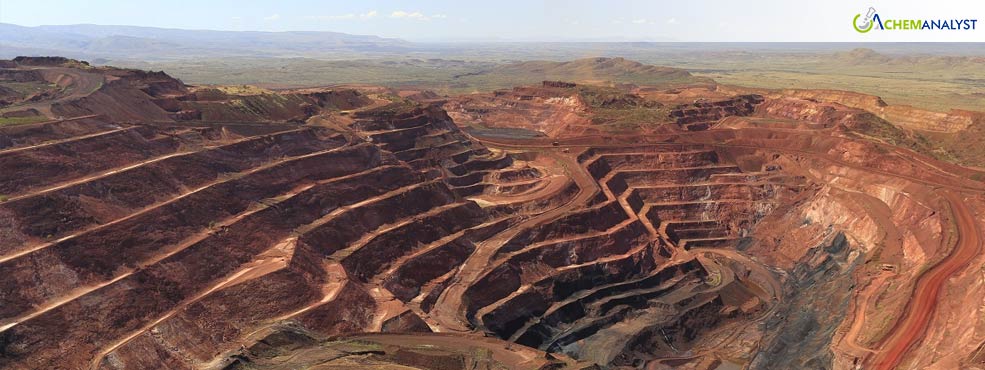Welcome To ChemAnalyst

The escalating US-China trade war and its ripple effects on iron ore prices present a complex scenario for the chemical industry, demanding a nuanced understanding of interconnected global markets and potential downstream consequences. While the direct impact on iron ore may seem distant, the chemical sector, particularly those segments intertwined with steel production and Chinese industrial activity, must proactively assess vulnerabilities and adapt to shifting dynamics.
For chemical producers reliant on steel industry demand, the potential slowdown in iron ore consumption signals a need to diversify product portfolios and explore alternative markets. Reduced steel production translates to lower demand for chemicals used in manufacturing processes, such as refractory materials, corrosion inhibitors, and specialty coatings. Companies heavily invested in this segment must consider optimizing production, exploring new applications for existing chemistries, or developing innovative solutions for emerging sectors less reliant on traditional steel manufacturing.
Furthermore, the trade war's impact on Chinese industrial growth raises concerns for chemical exporters. China's role as a major consumer of chemicals, particularly for construction, automotive, and manufacturing sectors, cannot be overstated. Any slowdown in Chinese economic activity, triggered by reduced steel demand and trade disruptions, will likely dampen demand for chemical imports. Chemical companies reliant on the Chinese market must proactively seek alternative export destinations, strengthen relationships with existing clients in other regions, and adjust production strategies to align with shifting global demand patterns.
However, the chemical industry is no stranger to volatility and possesses inherent resilience. Companies can leverage their expertise in innovation and adaptability to navigate these challenges. Exploring new markets, particularly in Southeast Asia and India, where infrastructure development and industrial growth remain robust, presents an opportunity to offset potential losses in the Chinese market. Investing in research and development to create high-value specialty chemicals with applications in emerging sectors, such as renewable energy and advanced materials, can also mitigate reliance on traditional steel-dependent industries.
Moreover, the chemical industry can capitalize on the potential for lower input costs. Reduced iron ore prices may translate to lower steel prices, benefiting chemical companies that utilize steel in their infrastructure or production processes. This cost advantage can be strategically leveraged to enhance competitiveness, invest in expansion projects, or improve profit margins.
In conclusion, while the trade war and fluctuating iron ore prices create uncertainty, the chemical industry possesses the tools and expertise to navigate this complex landscape. By proactively assessing vulnerabilities, diversifying markets, investing in innovation, and strategically leveraging potential cost advantages, chemical companies can not only weather the storm but also emerge stronger and more resilient in the face of future global challenges.
We use cookies to deliver the best possible experience on our website. To learn more, visit our Privacy Policy. By continuing to use this site or by closing this box, you consent to our use of cookies. More info.
